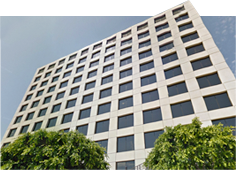E-2 Visa: What is the Required Investment Amount?
Investment Requirement for an E-2 Visa
The E-2 Treaty Investment Visa is the visa of choice for many business owners setting up shop in the U.S. The visa is highly desired as there is no limit to extensions of stay or visa renewals. Unlike the L-1, and H-1B nonimmigrant visas, which have cap of 5-7 years, the E-2 visa and status can be extended indefinitely, as long as the investment entity continues to operate.
Entrepreneurial E-2 seekers, having ascertained that their nationality qualifies them for E-2 status and eager to bring their talent, skills (and money) to the U.S., are then faced with the most important question relating to this visa–how much should be invested? As the E-2 is an investment-based visa, the funds committed must show that the investor is unquestionably committed to the success of the business and that the business is not merely speculative. In other words, the investment entity should be funded so as to have a strong chance of success.
While there is no exact dollar figure defining the required investment amount in the Federal Regulations, it is clear that a “substantial” amount must be invested. Substantiality is determined by employing a “proportionality test”. An investment is deemed substantial by comparing the total amount invested to the cost of running or establishing the business. If the investment amount has invested 100 percent of the needed funds for the business, then the investment is substantial. Most cases involve lesser percentages, and substantiality can be evaluated as an inverted sliding scale. The lower the cost of running or founding a particular business, the higher a percentage of investment that is required to meet substantiality. For example, businesses of $100,000 or less typically require 100 percent to be invested. On the other hand, an investment of $700,000 in a $1million entity would likely qualify, based on the magnitude of the investment.
In addition to the proportionality test, it is clear that USCIS and the Department of State also consider the nature of the business in evaluating substantiality in the E-2 context. For example, manufacturing businesses, such as a farm equipment manufacturing enterprise, may cost millions of dollars to establish and operate. On the other hand, service industry entities–whose main value comes from the knowledge, skill and ability of the E-2 investor–would be relatively lower. Immigration authorities have made it clear that as long as all other E-2 requirements are met, the lower cost of establishing a service-oriented business will not necessarily result in a denial.
E-2 Visa Investment Sample Cases
While the typical E-2 investment amount will fall in the $100,000 – $150,000 range, recent cases handled by our law firm with lesser amounts include: real estate development and construction consulting ($65,000); software application development ($70,000); hair and nail salon shop ($85,000); architecture and renovation consulting ($80,000); and a bakery ($80,000). A common ingredient to all successful E-2 cases is a carefully prepared Business Plan and explanatory Cover Letter. The Business Plan and the E-2 Cover Letter act as the immigration officers’ road map, detailing how the investment funds will be put to use and why they are substantial.
Defining substantiality is not an exact science, but a seasoned E-2 lawyer will be able to give the potential investor an understanding of whether the investment will satisfy immigration regulations. Before committing to investing in and relocating to the U.S., discuss your business plans, professional background, financial situation and immigration goals with an experienced Business Immigration Attorney.






